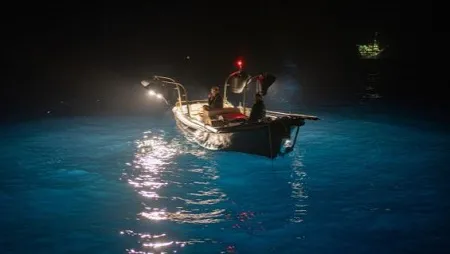-
 Welcome to plumtriA platform for Research & Innovation
Welcome to plumtriA platform for Research & Innovation -
 Looking for Funding?Check out the current open calls
Looking for Funding?Check out the current open calls -
 Register today to start receiving our monthly newsletter
Register today to start receiving our monthly newsletter -
 Looking to partner up?Search our list of registered profiles
Looking to partner up?Search our list of registered profiles -
 You have questions on a particular funding programme?
You have questions on a particular funding programme?
JPI Oceans - Let there be Lightscapes projects
Image

Marine lightscapes, meaning the distribution and quality of light in marine environments, are emerging as a critical area of scientific inquiry due to their changes over the last century. Marine lightscapes are indeed experiencing two fundamental transformations: coastal darkening and the proliferation of artificial light at night. In one respect, some regions have experienced a long-term reduction in water clarity, referred to as coastal darkening, with large-scale drivers notably connected to effects of climate change and eutrophication. Conversely, urbanisation, fisheries, on- and offshore infrastructures, and shipping have increased the amount of artificial light at night (ALAN) pollution in many marine areas.
JPI Oceans has always been a pioneer in identifying urgent topics that address under-studied areas. With the Joint Action Changing Marine Lightscapes we aim to fill the existing knowledge gaps in this field. Following a concept paper, which highlighted the need for a better understanding of the impact of changes in marine lightscapes on marine environments, its biodiversity and ecosystem functioning, JPI Oceans launched a Joint Call on the Consequences of Changing Marine Lightscapes in early 2024.
About the Joint Call
The JPI Oceans Joint Call on the Consequences of Changing Marine Lightscapes specifically addresses the drivers and ecological impacts of changing marine lightscapes that result from both coastal darkening and marine ALAN pollution. The two defined sub-topics are aligned with JPI Oceans’ strategic positioning and complement European funding. The countries participating in this Call include Germany, Ireland, Malta, Norway, Poland, and the United Kingdom for an overall budget of EUR 4.05 million, while Greece contributes in-kind research infrastructure. The Joint Call is kindly managed by Project Management Jülich in Germany and co-branded by the UN Decade of Ocean Science for Sustainable Development 2021-2030, which is led by UNESCO’s Intergovernmental Oceanographic Commission.
The Call welcomed proposals about closing critical gaps in our understanding of the impact of coastal darkening and ALAN on the marine environment focussing on one or more of the following topics:
-
Biodiversity, biogeography, and biogeochemistry, including primary production
-
Photobiology and ecophysiology, including light-induced seasonal timing of organismal behaviour
-
Ecosystem functioning, food web architecture, and ecosystem services including sustainable fisheries
The outcome of the Call resulted in the selection of two projects in December 2024, both expected to start in July 2025 with a duration of 36 months. The JPI Oceans Joint Action on Marine Lightscapes also includes the establishment of a knowledge hub in which the project partners gather with other relevant stakeholders to consolidate and disseminate key findings and provide science to policy recommendations.
Selected projects
Impacts of Artificial Light At Night on pelagIc ecosystems in European Seas (ALANIS)
Coordinated by Dr. Rüdiger Röttgers (Helmholtz-Zentrum Hereon), Germany, ALANIS will investigate the proliferation of ALAN from coastal activities and shipping and its impact on organism behaviour, such as vertical migration, and on key ecosystem functions, while also considering counteracting effects of coastal darkening. Experimental and observational study sites will cover a high latitude region, including the Mediterranean Sea. ALANIS will develop an ALAN risk map together with the biological and physical knowledge leveraged at the study sites to show potential impacts of ALAN and coastal darkening on key ecosystem functions such as export flux.
IndicatorS Of changing Lightscapes in Underwater Marine Ecosystems (ISOLUME)
Coordinated by Professor Oliver Zielinski (Leibniz Institute for Baltic Sea Research Warnemünde - IOW), Germany, this project will assess how marine lightscapes have changed across European sea basins over decadal to centennial timescales, and determine drivers, sources and impacts of these changes at both large and small scales. The investigation includes marine, estuarine, and freshwater systems, land-ocean connectivity, as well as temperature and salinity gradients. The project uniquely investigates four dimensions of marine lightscapes: intensity, location, timing, and spectra, with a focus on changes over the recent 25 years and projections until 2050.
Information and image source:

plumtri is a platform that facilitates networking and knowledge sharing amongst stakeholders in the Mediterranean, involved in the spheres of research and innovation and serves as a 'one-stop-shop' for information on relevant funding opportunities and events.
Contact Us
Address:
Xjenza Malta
Villa Bighi,
Dawret Fra Giovanni Bichi,
Kalkara KKR 1320,
Malta.
(+356) 2360 2161



